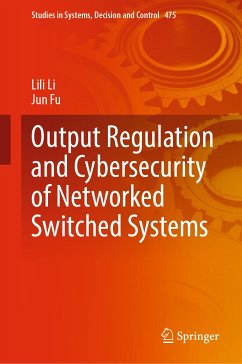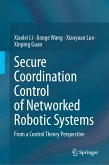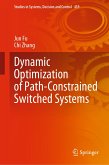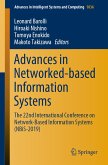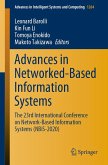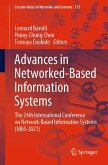This book proposes several novel methodologies for output regulation of networked switched systems from the perspective of both steady-state and transient performance. The core features of our approaches are fourfold: i) Without imposing stability requirements on individual subsystems and all switching instants, a series of innovative dwell-time switching technologies are established to handle the issue of output regulation for networked switched systems with severely unstable dynamics under event-triggering strategies in the presence of cyber attacks. ii) Taking into account switching rules and cyber attack parameters within the event-triggered control framework, event detection conditions, modal matching conditions, and event waiting conditions are constructed, and a series of new event-triggering mechanisms are proposed to effectively enhance network resource utilization and secure steady-state performance of networked switched systems. iii) Typical cyber attacks have unique consequences on the secure steady-state performance of networked switched systems with severely unstable dynamics due to the short activation time of a single subsystem and the necessity to relay the switching signal through the network. To this purpose, the consecutive asynchronous switching behaviors of the subsystem or controller resulting from a long-duration DoS attack or an integrity deception attack incorporating switching signal tampering are investigated. iv) To deal with the transient performance fluctuations of the closed-loop system caused by factors such as mismatch switching between the subsystem and the corresponding controller, data update at event-triggering instants, cyber attack blocking and tampering of transmitted data, etc., bumpless transfer control strategies are formulated in the interpolation type and multi-source type, balancing the transient and steady-state performances of the output regulation of networked switched systems. This book presents these topics in a systematic way, which is of tremendous importance to both theoretical research and practical applications involving switched systems.
Dieser Download kann aus rechtlichen Gründen nur mit Rechnungsadresse in A, B, BG, CY, CZ, D, DK, EW, E, FIN, F, GR, HR, H, IRL, I, LT, L, LR, M, NL, PL, P, R, S, SLO, SK ausgeliefert werden.

